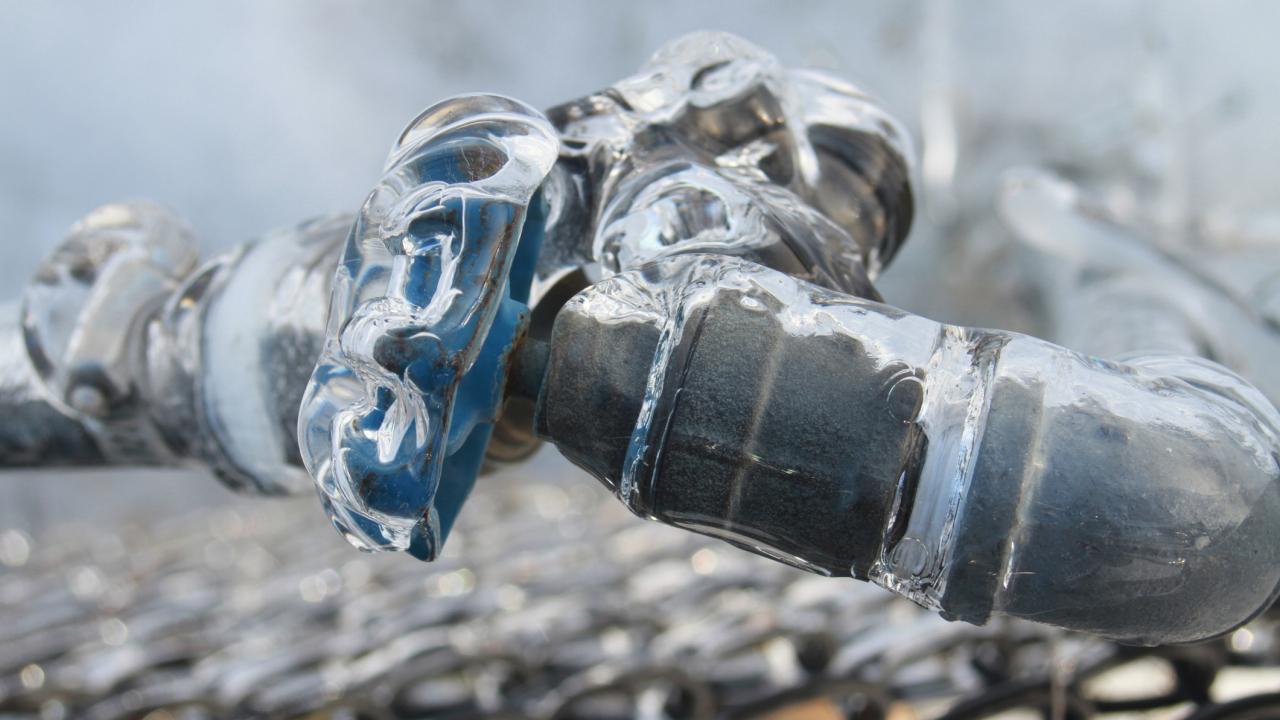Key Approaches for Preventing Frozen Plumbing in Cold Weather
Key Approaches for Preventing Frozen Plumbing in Cold Weather
Blog Article
The content directly below about Prevent Frozen Pipes is totally motivating. Give it a try and draw your own personal final thoughts.

Winter can damage your pipes, specifically by freezing pipes. Below's exactly how to avoid it from taking place and what to do if it does.
Introduction
As temperature levels drop, the risk of frozen pipes rises, potentially resulting in pricey repair work and water damages. Comprehending how to avoid icy pipes is crucial for property owners in chilly environments.
Prevention Tips
Shielding vulnerable pipes
Wrap pipes in insulation sleeves or use warmth tape to secure them from freezing temperature levels. Concentrate on pipes in unheated or exterior areas of the home.
Home heating strategies
Keep indoor areas properly heated, especially areas with pipes. Open up cabinet doors to allow warm air to distribute around pipelines under sinks.
Just how to determine frozen pipelines
Look for reduced water flow from faucets, uncommon odors or noises from pipelines, and noticeable frost on subjected pipes.
Long-Term Solutions
Architectural changes
Think about rerouting pipes far from outside wall surfaces or unheated locations. Add additional insulation to attics, cellars, and crawl spaces.
Updating insulation
Invest in top notch insulation for pipelines, attics, and wall surfaces. Correct insulation helps maintain constant temperature levels and lowers the risk of icy pipes.
Protecting Outside Plumbing
Yard tubes and outside faucets
Separate and drain pipes yard pipes before wintertime. Install frost-proof faucets or cover outdoor faucets with insulated caps.
Comprehending Icy Pipelines
What causes pipelines to freeze?
Pipelines freeze when subjected to temperature levels listed below 32 ° F (0 ° C) for expanded periods. As water inside the pipes freezes, it increases, putting pressure on the pipe walls and possibly triggering them to burst.
Threats and problems
Icy pipelines can cause water supply disruptions, building damage, and costly repair services. Ruptured pipelines can flood homes and cause extensive structural damage.
Indications of Frozen Water Lines
Recognizing frozen pipelines early can prevent them from rupturing.
What to Do If Your Pipelines Freeze
Immediate activities to take
If you suspect frozen pipelines, keep faucets available to soothe stress as the ice melts. Make use of a hairdryer or towels soaked in warm water to thaw pipes slowly.
Verdict
Stopping frozen pipelines needs positive measures and quick reactions. By recognizing the causes, indicators, and preventive measures, house owners can shield their plumbing throughout winter.
Helpful Tips to Prevent Frozen Pipes this Winter
UNDERSTANDING THE BASICS: WHY PIPES FREEZE AND WHY IT’S A PROBLEM
Water freezing inside pipes is common during the winter months, but understanding why pipes freeze, and the potential problems it can cause is crucial in preventing such incidents. This section will delve into the basics of why pipes freeze and the associated problems that may arise.
THE SCIENCE BEHIND FROZEN PIPES
When water reaches freezing temperatures, it undergoes a physical transformation and solidifies into ice. This expansion of water as it freezes is the primary reason pipes can burst. As the water inside the pipe freezes, it expands, creating immense pressure on the walls. If the pressure becomes too great, the pipe can crack or rupture, leading to leaks and water damage.
FACTORS THAT CONTRIBUTE TO PIPE FREEZING
Low Temperatures: Extremely cold weather, especially below freezing, increases the risk of pipes freezing. Uninsulated or Poorly Insulated Pipes: Pipes located in unheated areas, such as basements, crawl spaces, or attics, are more prone to freezing. Insufficient insulation or lack of insulation altogether exacerbates the problem. Exterior Wall Exposure: Pipes running along exterior walls are susceptible to freezing as they encounter colder temperatures outside. Lack of Heating or Temperature Regulation: Inadequate heating or inconsistent temperature control in your home can contribute to frozen pipes. PROBLEMS CAUSED BY FROZEN PIPES
- Pipe Bursting: As mentioned earlier, the expansion of water as it freezes can cause pipes to burst, resulting in significant water damage.
- Water Damage: When pipes burst, it can lead to flooding and water damage to your property, including walls, ceilings, flooring, and personal belongings.
- Structural Damage: Prolonged exposure to water from burst pipes can compromise the structural integrity of your home, leading to costly repairs.
- Mold and Mildew Growth: Excess moisture from water damage can create a favorable environment for mold and mildew growth, posing health risks to occupants.
- Disrupted Water Supply: Frozen pipes can also result in a complete or partial loss of water supply until the issue is resolved.
WHY CERTAIN PIPES ARE MORE PRONE TO FREEZING
- Location: Pipes located in unheated or poorly insulated areas, such as basements, crawl spaces, attics, or exterior walls, are at higher risk of freezing.
- Exterior Pipes: Outdoor pipes, such as those used for irrigation or exposed plumbing, are particularly vulnerable to freezing as they are directly exposed to the elements.
- Supply Lines: Pipes that carry water from the main water supply into your home, including the main water line, are critical to protect as freezing in these lines can affect your entire plumbing system.
- Underground Pipes: Pipes buried underground, such as those connected to sprinkler systems or outdoor faucets, can be susceptible to freezing if not properly insulated.
https://busybusy.com/blog/helpful-tips-to-prevent-frozen-pipes-this-winter/

We are very inquisitive about Helpful Tips to Prevent Frozen Pipes this Winter and I really hope you liked the new blog post. If you appreciated our blog post please make sure you remember to share it. Thank you for your time invested reading it.
Call Today Report this page